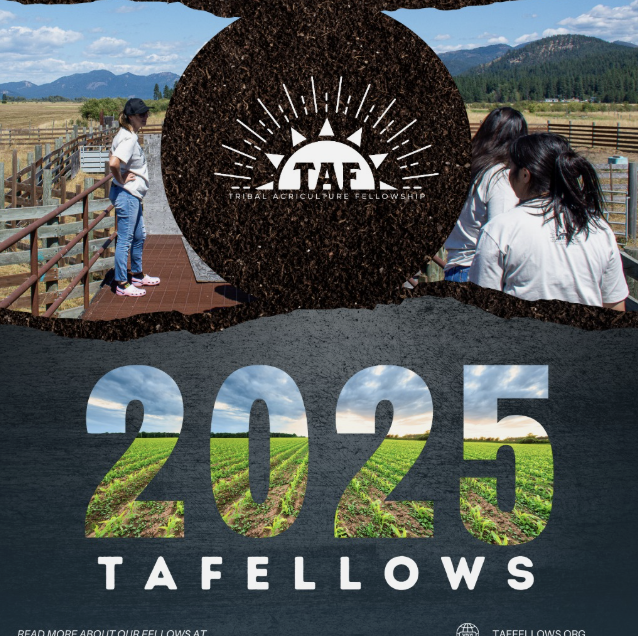
- Details
- By Native News Online Staff
“Welcoming our new cohort is always an inspiring moment. Every year, I am reminded of the talent, vision, and commitment that exists among Native students across thecountry,” said Nicole DeVon, Executive Director of the Tribal Agriculture Fellowship (TAF). “The 2025 Fellows are building a future where Native agriculture thrives through innovation, tradition, and community leadership. Their work represents a powerful step forward for all of rural America.”
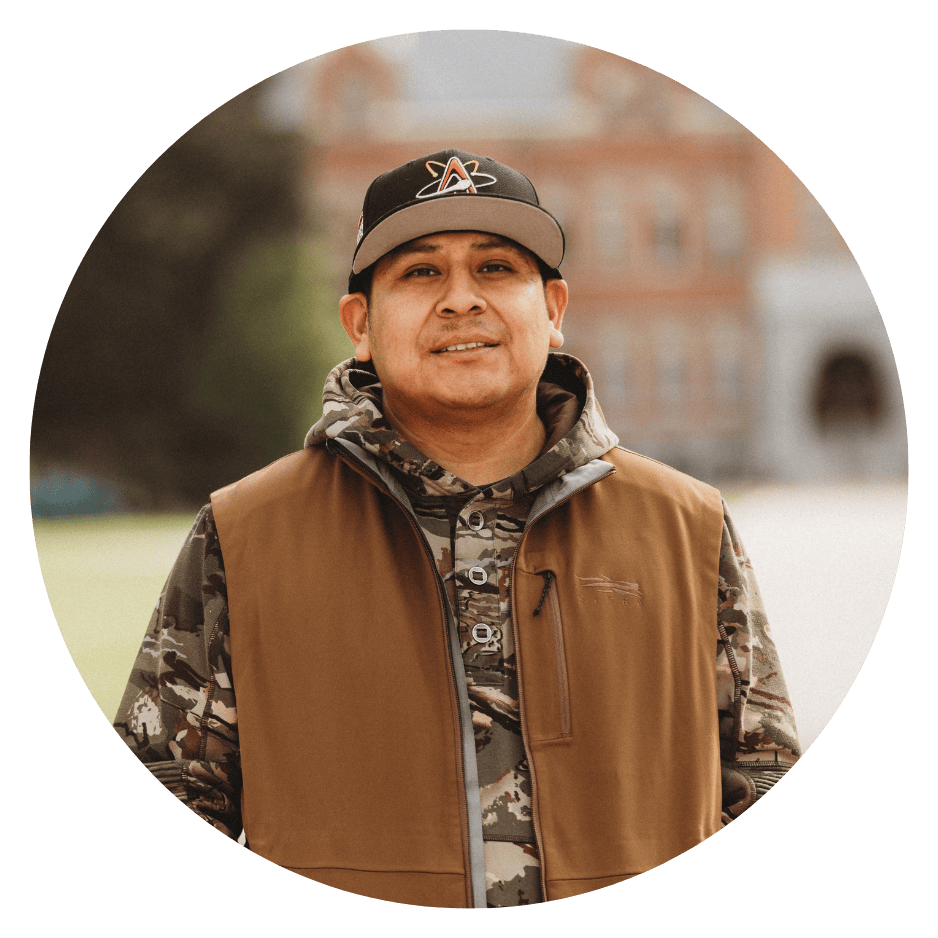
Daniel Bird (Santo Domingo Pueblo)
Daniel had the privilege of growing up learning his Pueblo culture and language, both of which are based upon local agriculture and interactions with the regional environment that has shaped his community for thousands of years. Based upon his upbringing he grew a passion for wildlife biology and earned his B.S. in Fish, Wildlife & Conservation Ecology from New Mexico State University, and M.S. in Forestry & Natural Resources at Purdue University.
His lifelong goals are to increase Native American representation in STEM fields at the university, tribal, state, and federal levels through mentorship and programing. In addition, he plans to assist tribes in continuing to sustainably manage natural resources while maintaining their unique culture, language, and indigenous ways of living. Daniel is currently a Ph.D. Candidate at the University of Montana in Missoula. His doctoral research is in partnership with the Blackfeet Tribe in northwest Montana to better understand the impacts of fences and proposed fencing expansion on elk migration movements and habitat use during parturition within the reservation, Glacier National Park, and the Lewis & Clark National Forest.
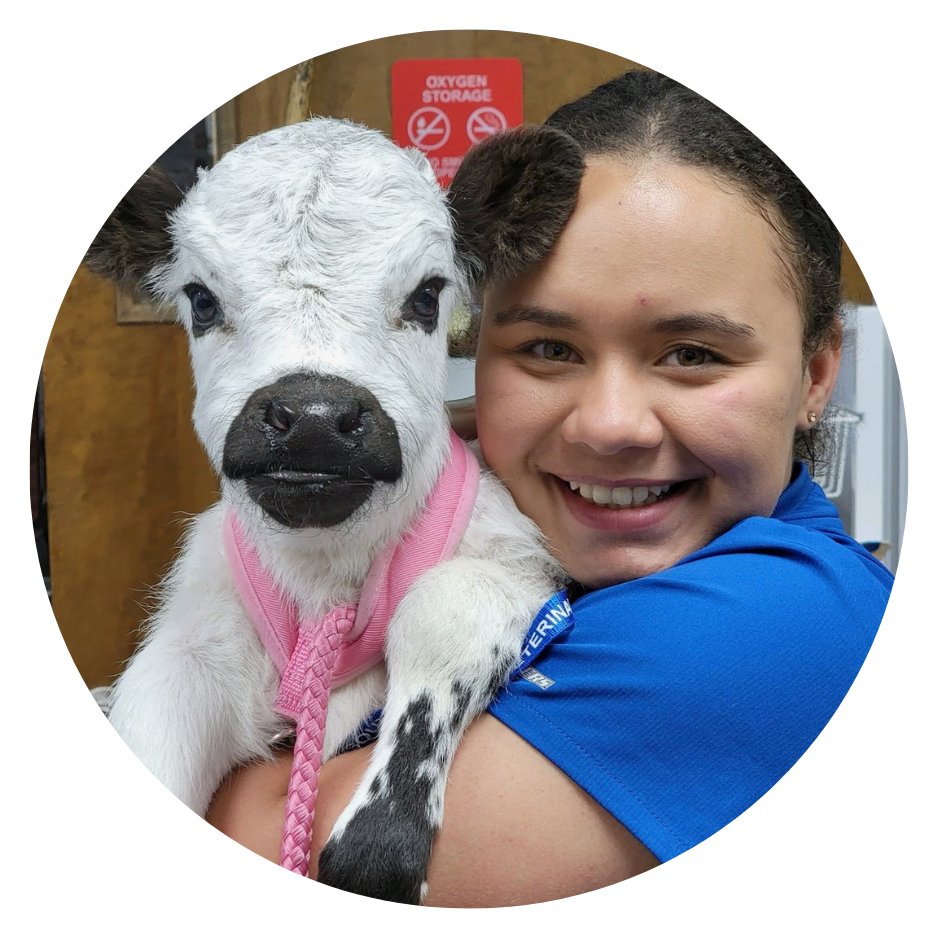
Jaelyn Dove (Lumbee Tribe)
“My name is Jaelyn Dove, and I’m a proud member of the Lumbee Tribe of North Carolina. I earned my Bachelor of Science degree in Animal Science from NC State, where I was challenged and shaped by one of the most rigorous programs in the state. Now, I’m honored to be continuing my journey as a veterinary student at Tuskegee University College of Veterinary Medicine.
Becoming a veterinarian has always been about more than just caring for animals—it’s about giving back to the communities that raised me. When I earn my DVM, I plan to return home to support local farmers and provide accessible, compassionate veterinary care in underserved rural areas.
I’m passionate about making a difference, preserving my culture, and being a role model for other Indigenous students who dream of entering the veterinary field. This is more than a career for me—it’s a calling.“
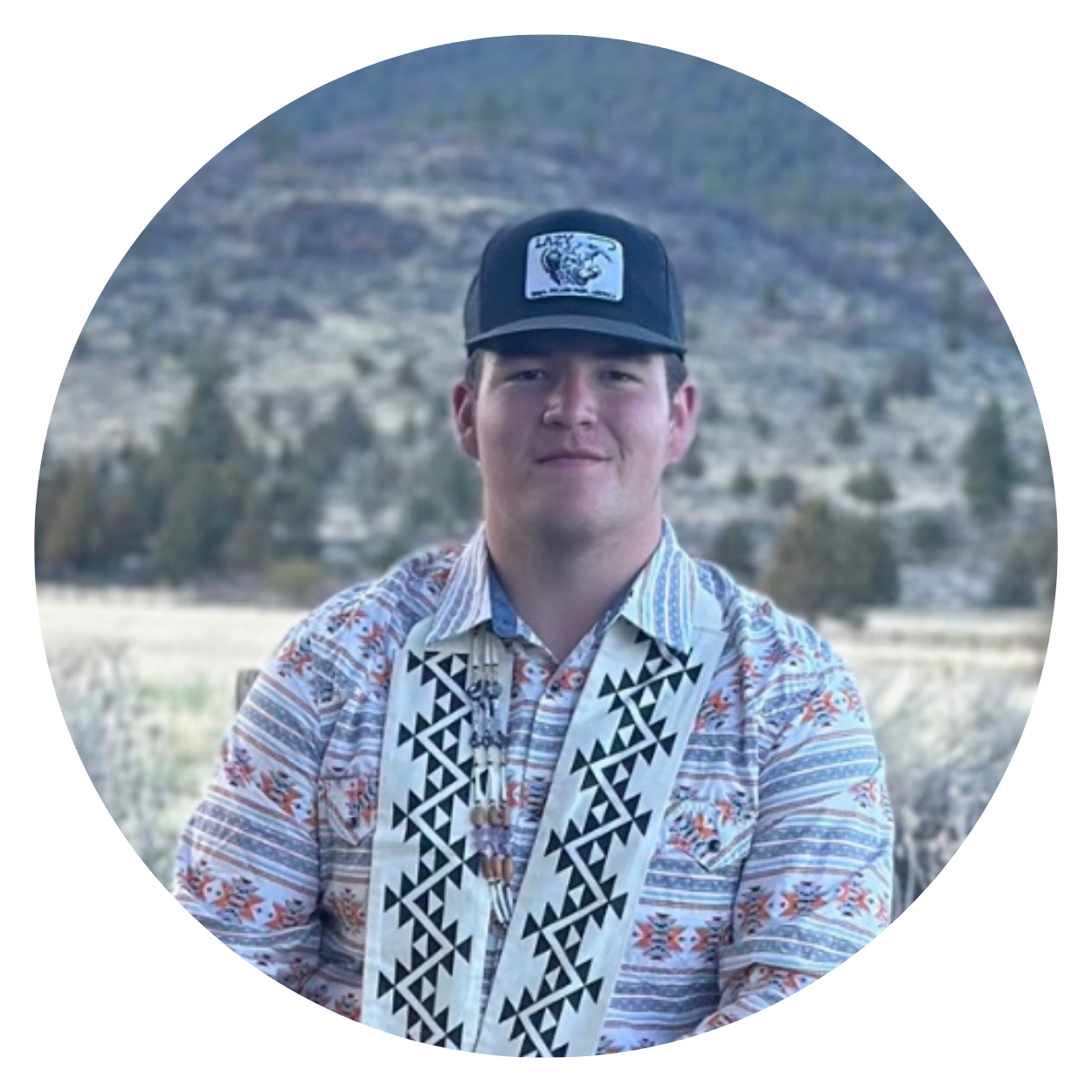
Reegan Dunten (Pit River Tribe)
Reegan Thomas Dunten, an enrolled member of the Pit River Tribe of Burney, California, is set to graduate from Lassen High School in June 2025. Following graduation, he will attend Southern Oregon University (SOU) in Ashland, Oregon, where he will join the university’s football team. In addition to his athletic commitments, Dunten has been accepted into SOU’s Honors College Program and the Tribal Nations Honors Scholar initiative, which supports Native students through mentorship and additional funding opportunities.
As a first-generation college student, Dunten plans to pursue a combined BS/MS degree in Agriculture and Environmental Science. His passion for agriculture is evident through his active involvement in the Future Farmers of America (FFA), where he has held leadership roles and demonstrated a commitment to character, cooperation, citizenship, and achievement.
He is honored to be part of this fellowship and looks forward to collaborating with others who share his dedication to advancing agriculture in Tribal communities.
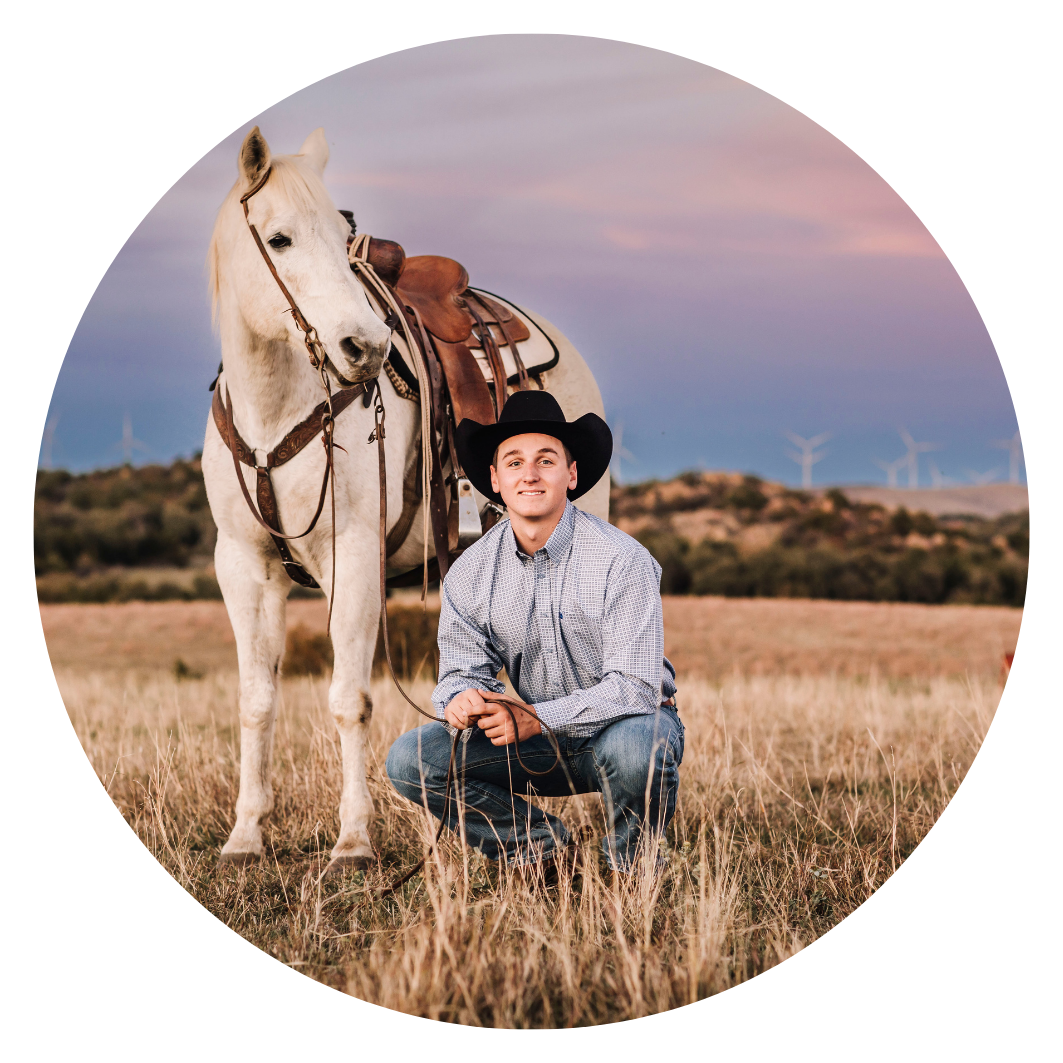
Bonham Eslick (Choctaw Nation)
Bonham Eslick is an incoming college Freshman from Apache, Oklahoma, recognized for his active involvement in agricultural activities and leadership roles. As a second-generation cattle producer, he has been deeply involved in the family business alongside his parents, Mike and Kori Eslick, and brother, Bohlin, raising his own herd of registered Black Angus bulls.
Bonham has been named a two-time State Champion in Oklahoma FFA Public Speaking and a two-time State Champion in American Farmers and Ranchers Public Speaking. In addition, Bonham has been a member of a State Champion Parliamentary Procedure Team and a three-time State Champion Chariman for Parliamentary Procedure. He was also on the National Runner-Up Agricultural Sales Team for the National FFA Organization. His Accomplishments led to his appointment to the Agriculture Youth Council by the Oklahoma Department of Agriculture, Food and Forestry. He was elected to serve as the Elgin FFA Chapter President by his fellow FFA members.
Bonham is also involved with Elgin High School’s FCCLA, National Honor Society, American Angus Association, and competes in bass fishing tournaments with Hobarts Anglers. After graduating in May 2024 with a 4.0 GPA, Bonham plans to attend Oklahoma State University to study animal science, aiming to enhance the genetic quality of cattle and continue to grow his own Angus herd.
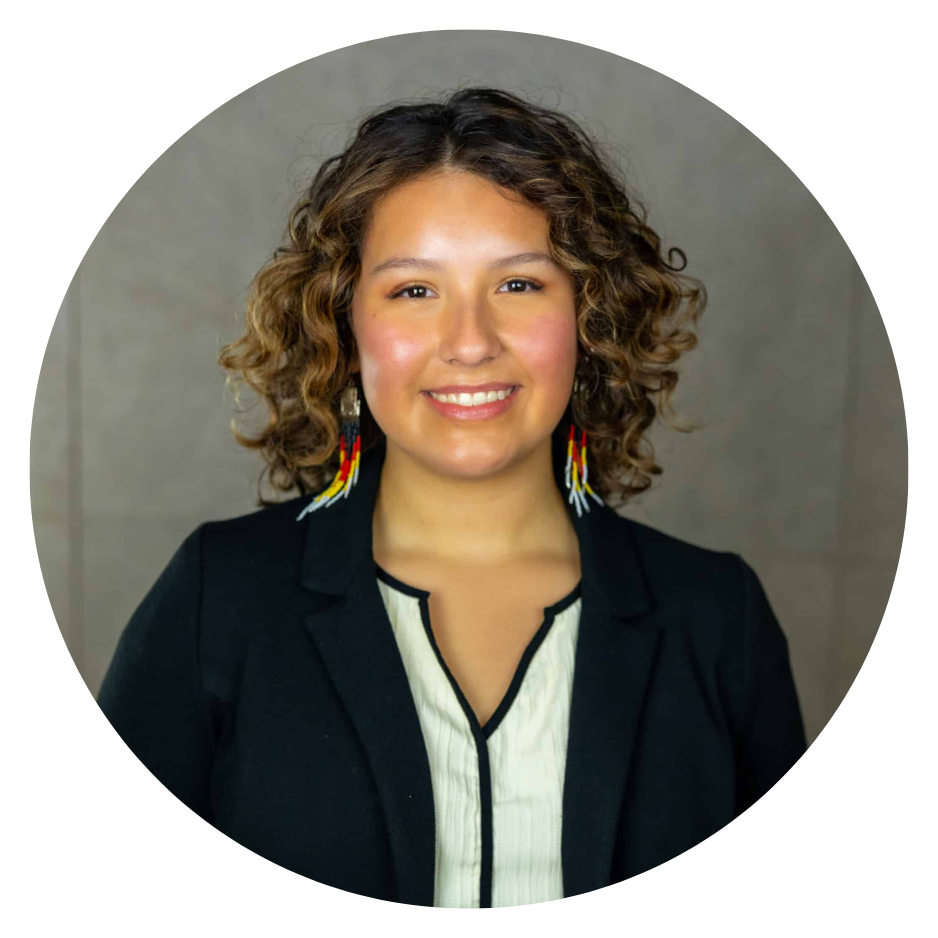
Jocelyn James (Choctaw Nation)
Jocelyn James is a member of the Choctaw Nation of Oklahoma pursuing an undergraduate degree in Plant and Soil Sciences with a concentration in soil and water resources from the Ferguson College of Agriculture at Oklahoma State University.
She hopes to utilize this education to work towards a Juris Doctorate degree in environmental and Tribal law.
Because of her involvement in FFA and the Oklahoma Department of Agriculture Youth Council, she has come to have a greater understanding and appreciation for the resources that power agriculture. She aspires to combine that knowledge and passion to make a difference in regenerative agriculture for Tribal reservations across the country, as well as educate others about the historic interconnectedness of Indigenous culture and agriculture.

Sydnie Marquez (Native Hawai’ian)
Sydnie Marquez is a senior at Kohala High School on Hawaiʻi Island, where growing up between the mountains and the ocean has shaped her deep respect for the land. She plans to study Environmental Science and Environmental Engineering, with her top college choices being the University of Hawaiʻi at Mānoa and the University of Washington in Seattle. Being raised in Kohala taught her the importance of living sustainably—only taking what’s needed, giving back to the ʻāina, and thinking ahead for future generations. With Hawaiʻi now importing most of its food, she hopes to help bring back traditional farming systems and guide the state toward a more self-sufficient future rooted in ancestral knowledge.
Her connection to agriculture runs deep—her great-great-grandparents worked at the old sugar plantation mill in Kohala, and her grandparents were part of the same FFA chapter exactly 40 years before she joined. This year, she served as chapter vice president, helping lead projects focused on native Hawaiian species, conservation, and sustainable farming. Through FFA, she’s reconnected with Hawaiian traditions like making lei poʻo and preparing imu, blending culture with agriscience.
“I believe that agriculture has the power to heal our relationship with the land, strengthen our cultural identity, and build a more sustainable future for all. I am committed to serving my community and ensuring that the ʻāina thrives for generations to come.”
Sydnie hopes to use what she learns in college to return home and support her community—and the land that has always supported her.
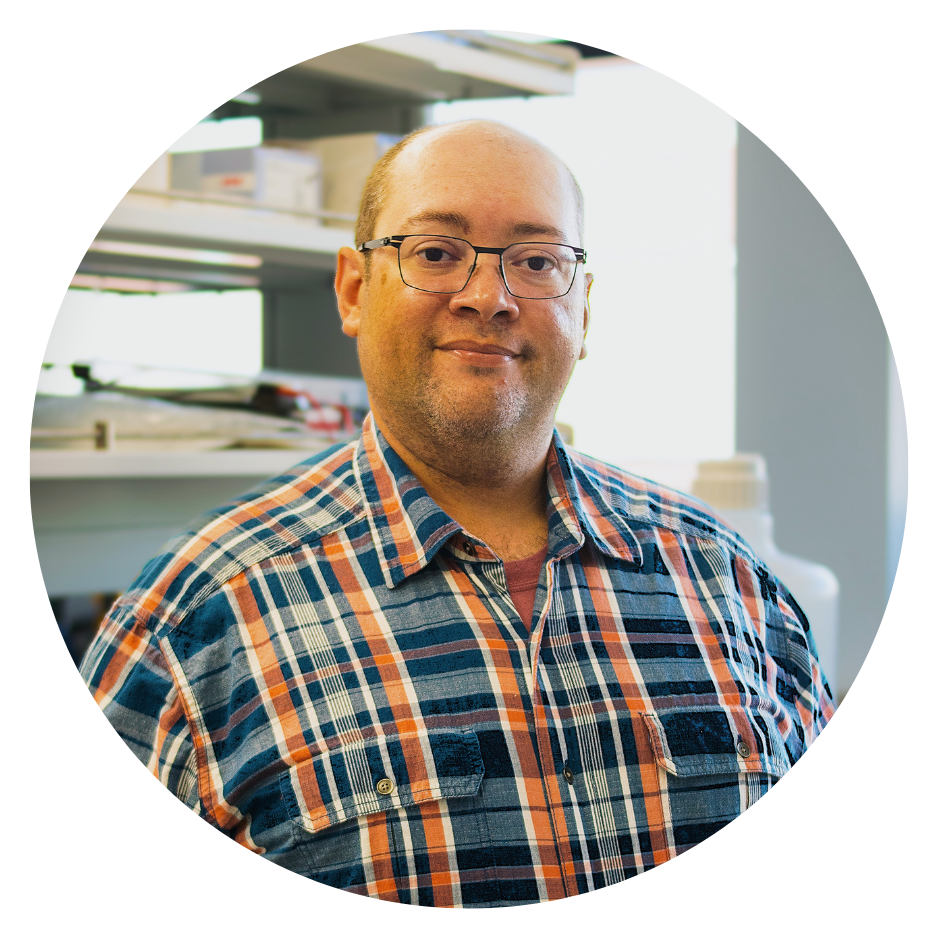
Kameron Richardson (Lumbee Tribe)
Kameron Richardson is a member of the Lumbee Tribe of North Carolina. Growing up on his family’s farm near Rowland, NC, Kameron gained hands-on experience working with row crops, hay, and cattle. He graduated from the University of North Carolina at Pembroke, where he majored in Biology with a double concentration in Molecular Biology and Botany. Kameron currently attends the University of Idaho, pursuing his PhD in Environmental Science.
At the University of Idaho, Kameron’s research focuses on soil microbial ecology, investigating how different farm management practices impact the soil microbial community and the functioning of the agroecosystem. He is also interested in soil health strategies aimed at reducing costs and inputs for farmers while increasing yields.
“I feel that microbes are the basis for any ecosystem. I’m passionate about learning how to use these microbes to restore degraded lands. I plan to take what I learn at the University of Idaho and implement soil health practices with my tribal community.”
More Stories Like This
Hanging a Red Dress for Christmas: MMIP, Native Higher Education, and Hope for a Better New YearNative Students Can Win $5,000 Scholarship, International Distribution in Pendleton Design Contest
American Indian College Fund Raises Alarm Over Plan to Shift Native Programs Away From the Dept. of Education
MacKenzie Scott Foundation Gives $5 Million Contribution to Little Priest Tribal College
Tribal Leaders Push Back on Dismantling of U.S. Department of Education
Help us defend tribal sovereignty.
At Native News Online, our mission is rooted in telling the stories that strengthen sovereignty and uplift Indigenous voices — not just at year’s end, but every single day.
Because of your generosity last year, we were able to keep our reporters on the ground in tribal communities, at national gatherings and in the halls of Congress — covering the issues that matter most to Indian Country: sovereignty, culture, education, health and economic opportunity.
That support sustained us through a tough year in 2025. Now, as we look to the year ahead, we need your help right now to ensure warrior journalism remains strong — reporting that defends tribal sovereignty, amplifies Native truth, and holds power accountable.
 The stakes couldn't be higher. Your support keeps Native voices heard, Native stories told and Native sovereignty defended.
The stakes couldn't be higher. Your support keeps Native voices heard, Native stories told and Native sovereignty defended.
Stand with Warrior Journalism today.
Levi Rickert (Potawatomi), Editor & Publisher


